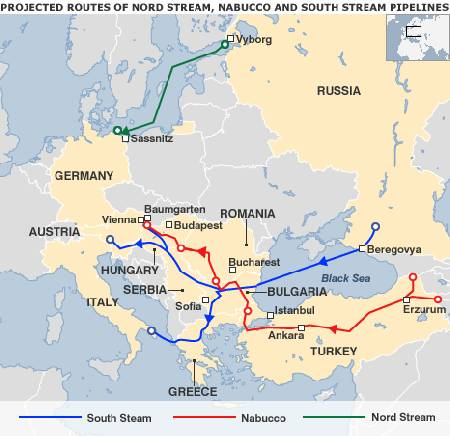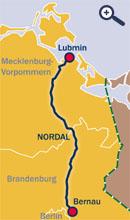
Pipeline Geopolitics: The Russia German Nord Stream Strategic Gas Pipeline.
by F. William Engdahl

In the postwar history of the

Gerhard Schroeder in effect owed his job to the quiet but influential backing of
His last act as Chancellor was to approve a giant gas pipeline from
In 2006
This month, despite ferocious political opposition from
From Lubmin, which will be a transfer station, the OPAL pipeline will go 470 kilometers through
North and South Energy Streams
Gazprom is also advancing a second major gas pipeline project, South Stream, to bring gas from Russia’s south coast under the Black Sea to Bulgaria, eventually ending up in Italy. On July 7, the Bulgarian government agreed after long negotiations to participate in the South Stream Gazprom project.
South Stream gas pipeline will transport Russian gas to western Europe, bypassing
Completion of South Stream would weld a major geopolitical bond between the countries of the EU, Central Europe and
So, unwittingly, the lovely seaside resort town of Lubmin in northeastern Germany de facto has become a major pivot of the geopolitical drama between Washington and Eurasia whether its citizens realize or not.
German Russian
www.globalresearch.ca/index.php
